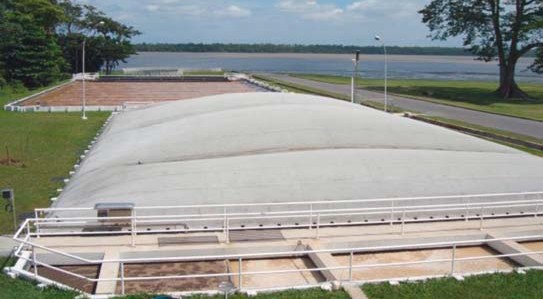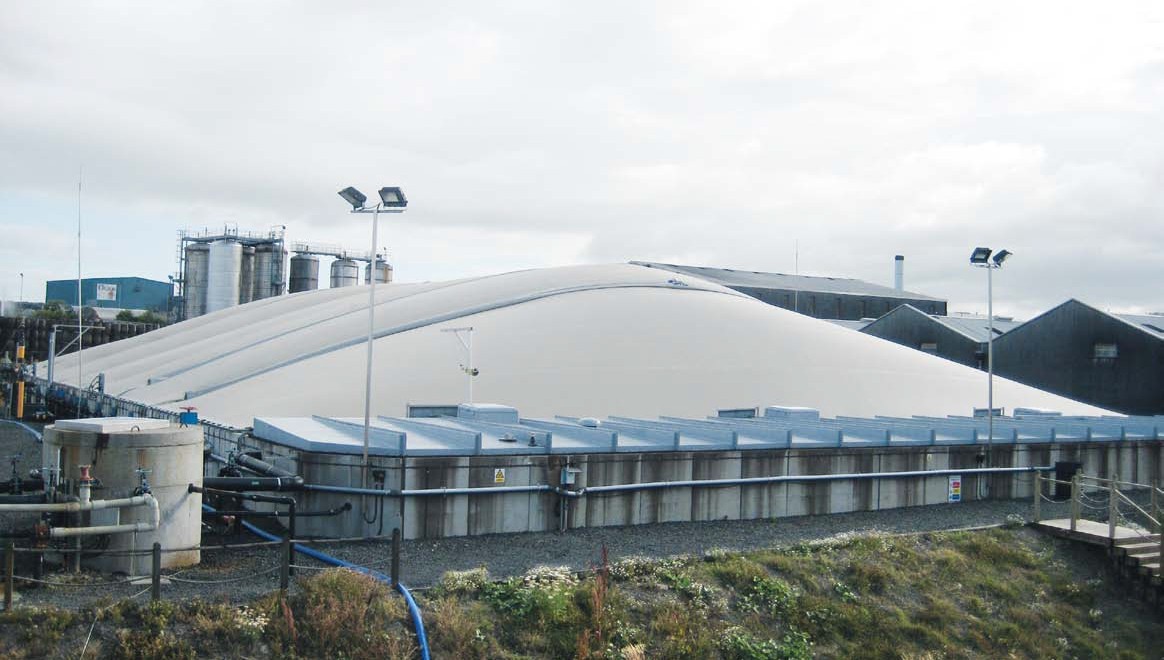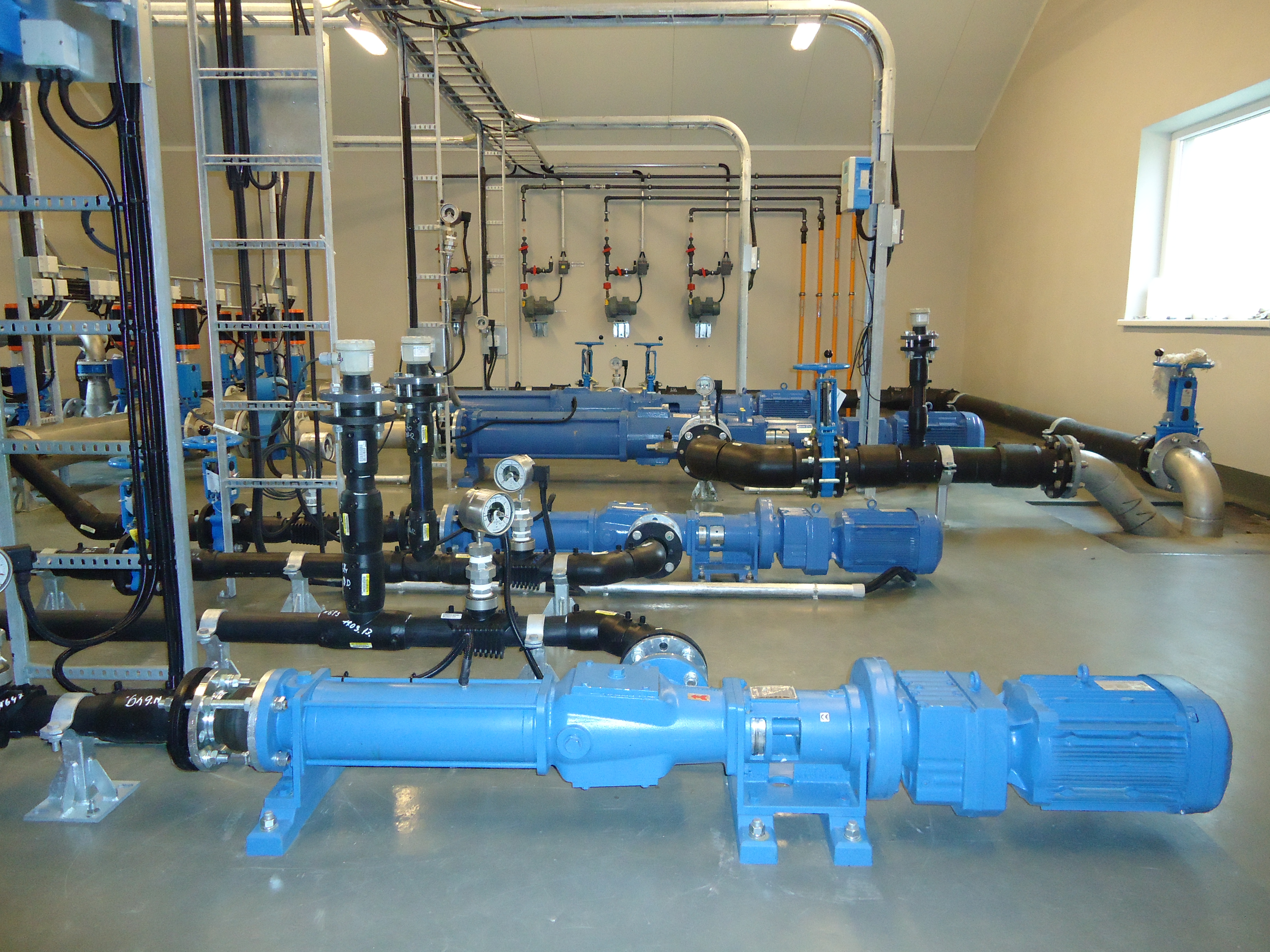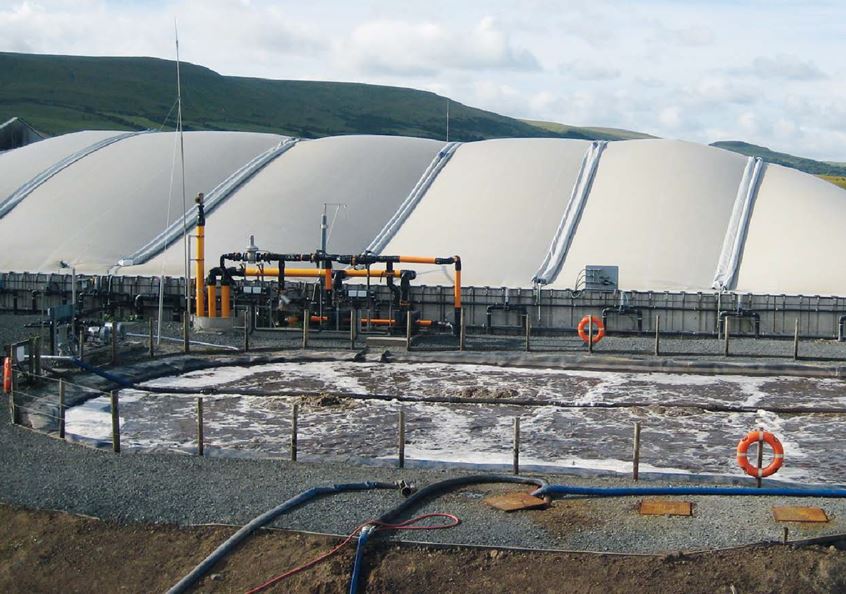From waste to energy source
The food industry faces a major challenge from highly polluted organic process effluents. In the past this has meant considerable investment in aerobic purification and associated energy costs to avoid environmental pollution and/or heavy fines.
Anaerobic digestion enables the organic load of process wastewater to be converted into biogas. With our third generation anaerobic plants (AD), you can benefit from highly effective and reliable operation to produce renewable energy.
Renewable energy has reduced global dependency on dwindling fossil fuels in recent years, the latter being associated with rising electricity prices.
SKJÖLDGAS® 3G can reduce costly treatment of organic waste and process water while at the same time put your comapny's energy supply on a sustainable and stable proce basis.
Your benefits at a glance:
- efficient anaerobic wastewater treatment and waste recycling
- Profit through electricity and heat generation
SKJÖLDGAS® 3G is suitable for all highly and heavily polluted process wastewater. Typical examples include:
distilleries, breweries, starch production, fruit processing, slaughterhouse, dairies etc..

High process stability through multi-stage process
This third generation technology is based on nearly 20 years of experience of Ellmann Engineering GmbH in the field of anaerobic digestion. More recently greater emphasis has been placed on the following priorities:
- Increasing the reliability and availability of technical systems
- Increasing process stability
- Reducing self-consumption of electrical energy and heat
- Reducing personnel costs for operation and maintenance
SKJÖLDGAS® 3G is based on a multi-stage process, following the natural biochemical processes of biogas production. An optimized combination of hydrolysis and acidification fermenters as the first stage makes it possible to provide the main fermenter with precisely metered amounts of organic acids required for methane production at all times.
The acidification processes prevents disruption to methane production caused by pH shifts as the acid/ buffer equilibrium (FOS/TAC) is kept at all times.
As a result stable, full-load operation is maintained.
Furthermore, we avoid all mechanically moving parts inside the fermenter.
Advantages of the multi-stage overview:
- high process stability
- uniform substrate mixing and ideal living conditions for the bacteria
- reliable performance and easy maintenance
- up to 30% less energy consumption
- efficient mixing through plug-flow principle
An integral component of your wastewater and waste management
SKJÖLDGAS® 3G is an important building block for Waste to Energy concepts for companies in the food industry. Our anaerobic technology ensures highly efficient, energy-saving and reliable cleaning of highly polluted process wastewater. The resulting biogas can be converted either selectively or in combination into heat (hot water or steam) and electrical ernergy.
Final effluent can be purified to single-line quality via an aerobic stage or reprocessed for reuse by further purification (membrane filtration, degerming).
SKJÖLDGAS® 3G can be supplemented or combined with other Ellmann Engineering processes:
CENTRIGAS® - a compact und integral anaerobic plant for the treatment solid and fibrous feedstocks or waste containing impurities.
ANAMRED® - a biological Ammonia defoliation for energy-saving mono-fermentation of protein or nitrogen-rich substrates.
VISCOSAND® - a method for the internal separation and extraction of sand, silt and other foreign matter in the anaerobic fermenter to avoid sediment-related enterruptions.
Advantages:
- Robust process for energy generation with a variety of applications
- integral component with multiple combination options






